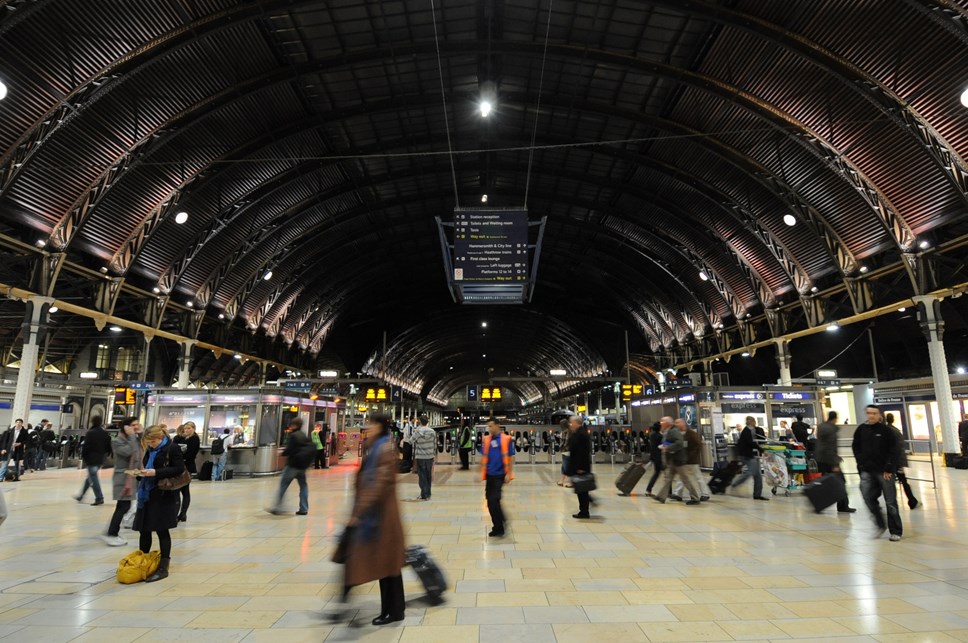
Passengers reminded of severe disruption due to drivers’ strikes on 30 September and 4 October
- Due to action called by the ASLEF leadership, 15 train companies on Saturday 30 September and Wednesday 4 October will be subject to strike action. Special timetables are available on the National Rail Enquiries website.
- Passengers are urged to check before they travel as there will be no services across large parts of the network.
- There will also be an overtime ban in place across 15 train operators on Friday 29 September and on non-strike days from 2 to 6 October which may lead to short-notice cancellations.
- Passengers who must travel should expect disruption, plan ahead and check when their last train will depart.
- Separate planned strike action by the RMT on Wednesday 4 and Friday 6 October is also expected to severely disrupt Tube services.
Passengers should check before they travel on Saturday 30 September and Wednesday 4 October, due to strike action by the train drivers’ union ASLEF. An overtime ban by ASLEF will affect train services on non-strike days between Friday 29 September and 6 October.
The strikes will affect services on 15 train companies, with trains due to start later and finish much earlier than usual – typically running between 7.30am and 6.30pm. Train companies will operate as many trains as possible but there will be wide regional variations, with some operators running no services at all.
It is likely that evening services on some lines will be affected on the days before each strike. Morning services on those lines may also be disrupted on 1 and 5 October because much of the rolling stock will not be in the right depots.
The rail industry is working hard to keep trains running despite the union leaders’ decision to reject an offer which would give their members an 8 per cent pay rise over two years, taking their average annual salary from nearly £60,000 to almost £65,000 for a typical 4-day week.
Special timetables for 30 September and 4 October are available on National Rail Enquiries
A spokesperson for Rail Delivery Group, said: “We want to resolve this dispute and are acutely aware of the damaging impact it's having on our passengers, our people and the long-term sustainability of the industry itself. We apologise to our customers for the unnecessary disruption to their journeys caused by the ASLEF leadership. The offer to ASLEF, which would take average driver salaries from £60,000 to £65,000 for a four-day week, remains on the table, and we are always open to constructive dialogue. However, at a time when the industry is losing £10m a day post covid, the union’s leadership must recognise the need to make changes to how the sector is run, to both fund any pay rise and, crucially, so we can give our passengers more reliable train services, particularly on Sundays."
Meanwhile, separate planned strike action by the RMT on Wednesday 4 and Friday 6 October is also expected to severely affect Tube services. Services are also expected to be disrupted into the following morning on Thursday 5 and Saturday 7 October. London Overground, Elizabeth line, DLR and tram services are not involved in the strike action but may be subject to last minute changes, including non-stopping at stations shared with London Underground. These services, and buses, are expected to be busier than usual. Customers are advised to check before they travel.
Ticketing arrangements
Passengers with Advance, Anytime or Off-Peak tickets for travel on 30 September can instead use their ticket on 29 September or up to and including Tuesday 3 October. Tickets for Wednesday 4 October can be used on 3 October or up to and including Friday 6 October. Passengers can also have their ticket refunded with no fee if the train that the ticket is booked for is cancelled, delayed or rescheduled.
If the Advance ticket is for a train that is scheduled for a strike day, and that service is not cancelled, delayed or rescheduled, but a customer prefers not to travel, they should contact their ticket retailer.
Customers with 2 x Advance tickets (an outbound and a return), to be used as a return journey, may be able to get a fee-free refund or change of journey for any unused legs/tickets, if one (either) of the legs is scheduled for a strike day. Customers should check with their ticket retailer.
Passengers with season tickets (flexi, monthly or longer), who do not travel, can claim 100% compensation for the strike dates through Delay Repay.
Passengers can check on the National Rail Enquiries website or their rail operator’s website for further travel advice.
